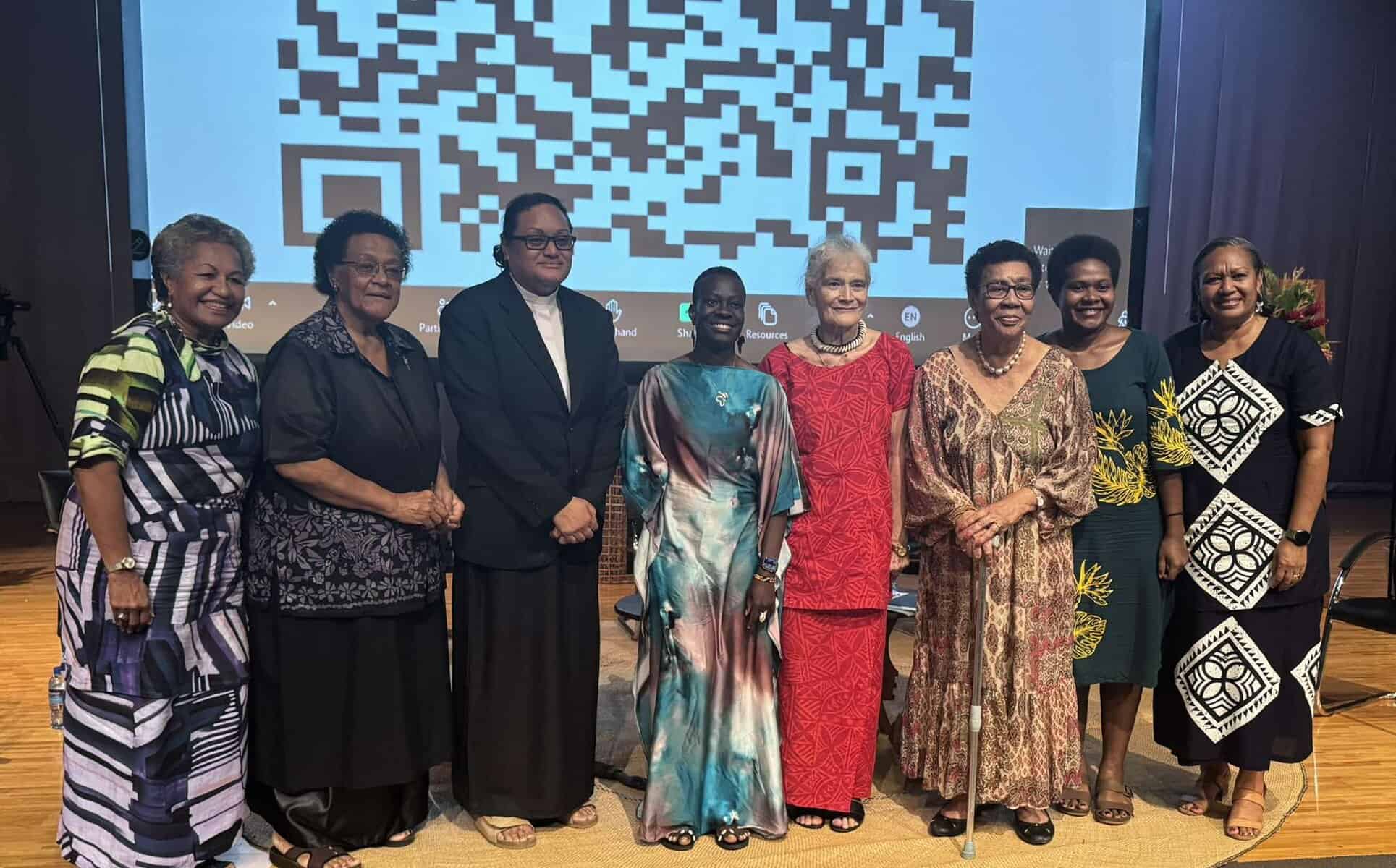A prominent faith leader says many gender inequalities in Pacific cultures are rooted in misinterpretations of religious texts.
Reverend Sereima Lomaloma made this observation at a gathering of cultural and faith-based leaders, government representatives, civil society organizations, the public, and members of the Committee on the Elimination of Discrimination Against Women (CEDAW) in Suva last week.
During an event to discuss how culture, faith, and gender intersect in the Pacific and how these intersections can be leveraged to advance gender equality in the region, Reverend Lomaloma noted that faith and religious leaders are actively challenging traditional gender norms and advocating for women’s empowerment within their communities.
She explained that traditional religious teachings have been used to justify practices that subordinate women, but that a progressive reading of scripture could help dismantle these harmful norms.
“We must re-examine it. People have believed that only males are created by God and women are not,” Lomaloma said. She stressed that faith-based initiatives are crucial to correcting these misunderstandings and promoting the idea that both men and women are equal in the eyes of God.
Lomaloma also highlighted the importance of education, particularly within church settings, where faith leaders can engage their congregations on issues of gender equality.
“When you explain it simply… and you tell women they need to be submissive, you must really examine that teaching,” Lomaloma added.
Further, Lomaloma pointed to the transformation she’s seen in individuals’ attitudes toward gender roles through faith-based programs. “It’s amazing to see the change when people realize they are not living as they should,” she said.
Lomaloma calls on men to reflect on their behaviors and treat their wives as equals.
Vice President of the Fiji National Youth Council, Selai Rasaqiwa also contributed to the conversation by sharing her perspective on how young people engage with culture, faith, and gender. In the session, she reflected on how GenZ, also known as digital natives, perceive these issues and how they can contribute to implementing gender equality frameworks like the CEDAW.
“As a youth leader, understanding how young people perceive faith, culture, and gender is crucial for building a more inclusive society,” said Rasaqiwa. “For many, faith is approached with scepticism, as youth question traditional practices and doctrines. But for others, their faith is a strong foundation, shaped by the beliefs they were raised with.”
She highlighted how gender norms are evolving among young people. “What we see is a shift. Young women are stepping into leadership roles, and more men are beginning to embrace the idea of equality,” she explained.
However, Rasaqiwa acknowledged that many young people are still unaware of CEDAW and its significance. “Most youths don’t know about CEDAW, particularly those who live in remote areas. It’s the youth in urban centers who have better access to this information.”
She called for more accessible ways to disseminate information about gender equality and CEDAW to youth in marginalised communities. “We need to bring this information to the grassroots level through educational campaigns, infographics, podcasts, and videos,” she said. “These tools will help young people understand the impact of CEDAW on their lives and encourage them to get involved in advocacy.”
She emphasised the importance of youth involvement in these discussions. “Youth advocacy, community engagement, and including marginalized groups such as LGBTQI youth and young people with disabilities are essential,” she stated. “We need to empower youth to actively engage with the issues and help lead the change.”
The Talanoa session provided an opportunity for attendees to engage directly with CEDAW Committee member Brenda Akia, who shared best practices from Africa on how culture can both enable and hinder women’s human rights. Reflecting on African history, she stated, “In Africa, if you go to our history, women were warriors, women were chiefs, women were the ones who took care of the villages, they had power. But once the dynamic changed, we took a very submissive position.”
Akia added: “Most constitutions in countries that have ratified CEDAW state that if any cultural or religious practice undermines the rights of women and girls, it is null and void.”
